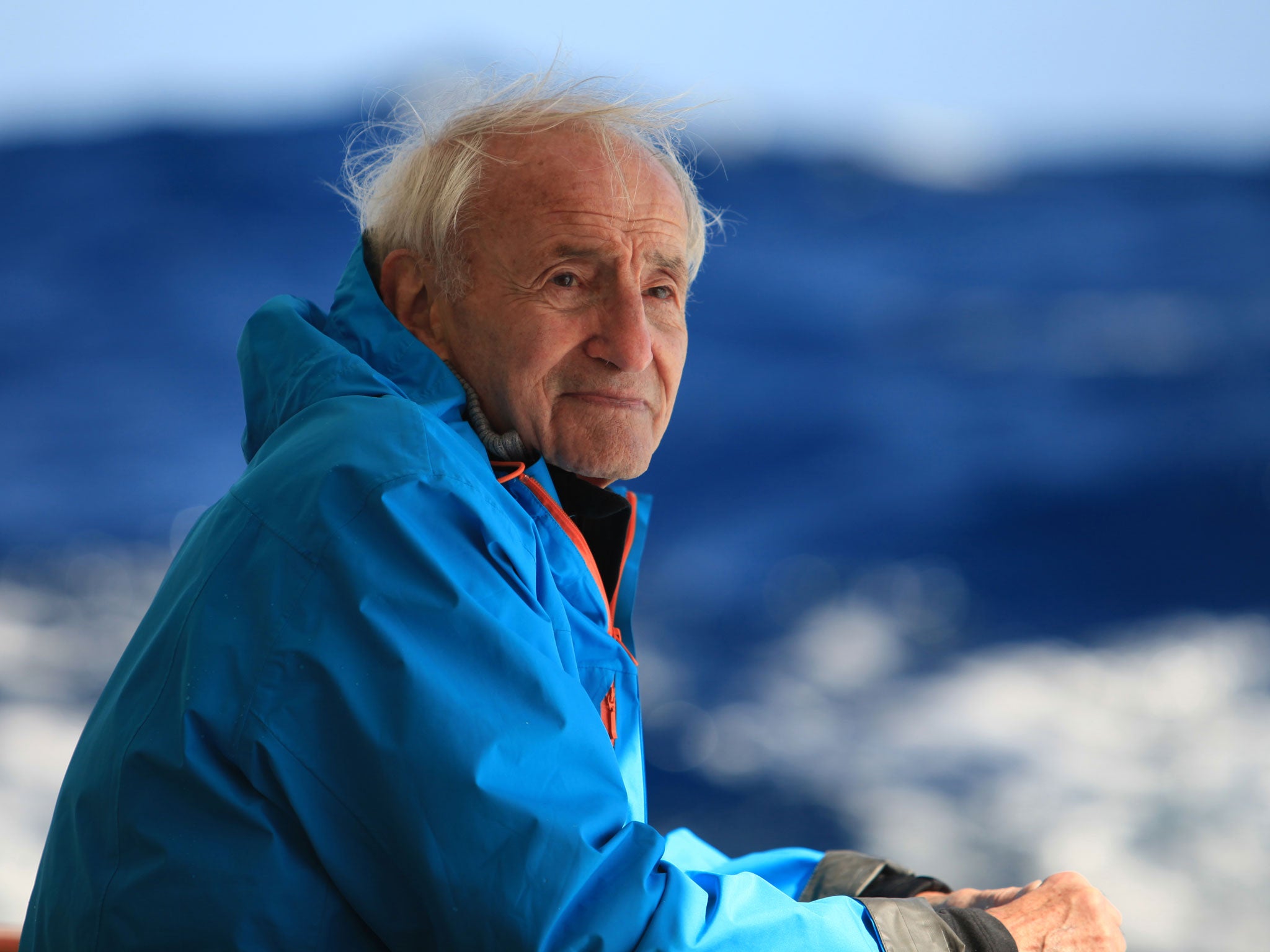Claude Lorius interview: The glaciologist on proving global warming with whiskey, and playing footie in Antarctica
Lorius is a French glaciologist and climate-change expert whose discovery of palaeo-atmosphere information within polar ice cores helped prove man-made global warming

Your support helps us to tell the story
From reproductive rights to climate change to Big Tech, The Independent is on the ground when the story is developing. Whether it's investigating the financials of Elon Musk's pro-Trump PAC or producing our latest documentary, 'The A Word', which shines a light on the American women fighting for reproductive rights, we know how important it is to parse out the facts from the messaging.
At such a critical moment in US history, we need reporters on the ground. Your donation allows us to keep sending journalists to speak to both sides of the story.
The Independent is trusted by Americans across the entire political spectrum. And unlike many other quality news outlets, we choose not to lock Americans out of our reporting and analysis with paywalls. We believe quality journalism should be available to everyone, paid for by those who can afford it.
Your support makes all the difference.It's always easy to criticise climate proposals Even with December's Paris climate-change talks agreement, it's going to be a huge challenge to solve the world's climate problems. But I completely agree with [US Secretary of State] John Kerry's point – that although it's not a perfect deal, it's the best deal. There's a saying in France that it's easy to find fault in others' work, but much harder to actually do the work. What I'd like to ask those who carry on criticising the talks' outcomes is what their alternative ideas are.
I will always be 23 years old That was my age when I first decided to go to Antarctica, in 1955, after I saw an advert at university. All I could think of was the possibility of adventure. It became my obsession. [Over the next 30 years, he would go on more than 20 scientific expeditions to the polar regions.]
Isolation is hard to deal with On one trip, the equipment that ran our electricity was ripped off by the wind, so we had no way of getting in touch with our families for a whole year. It was very hard to deal with, for them and for us. There were also months on end without sunlight, which had an impact on our mental health; when the sun came back, it was truly a beacon of hope.
I lost my physique to Antarctica When you've had frozen feet, it's not so easy to recuperate. It's affected my capacity to walk. And when you have to take your gloves off, to unscrew canisters, the cold takes hold and leaves traces on your hands and arms.
Drinking whiskey reminds me of my life's work I always have it with ice; the whiskey has colour, so it's easy to see the bubbles rising, and it reminds me of when, on an expedition, I first took some ice from one of our core samples, and added it to a glass of my favourite whiskey. I remember looking at the blue colour of the little ice cubes melting in the glass and as I saw the bubbles rise, I realised the scientific potential of analysing the trapped air. And from that little anecdote came the beginning of an understanding [that helped prove man-made global warming].
It was a shock to discover traces of atomic weapons testing Ice is like a book; every time there is snow, the thickness of the ice increases, and when you look deeper and deeper into the ice, you go back in time – not only centuries, but tens of millennia, giving us a record of climatic conditions on Earth. When we discovered, that far from civilization, the evidence of weapon tests that happened on the other side of the planet, it was proof that you cannot get away from the pollution that man creates on the planet.
I'm no stranger to doing stupid things In Antarctica, in 1979, after we'd had some good results from the lab one day, we had a football match. It was a short-lived game, but by the end, the ball was deflated, and we were totally out of breath from running around. I also used to go swimming in the lakes of Aix-les-Bains in Savoie, even though I shouldn't have because my arms were injured [from frostbite].
My family could easily have told me I was not a good father I was away for such a long time; Christmas and family get-togethers were the hardest times to miss. Especially at Christmas, I was a bit depressed in Antarctica, knowing that if any problems happened back home, I couldn't do anything. Yet they were still convinced I was a good father, and I feel happy when I see how close we are now.
Claude Lorius, 83, is a French glaciologist and climate-change expert whose discovery of palaeo-atmosphere information within polar ice cores helped prove man-made global warming. 'Ice and the Sky', a film about his work, is in cinemas now and is also available via video-on-demand (iceandthesky.co.uk)
Join our commenting forum
Join thought-provoking conversations, follow other Independent readers and see their replies
Comments